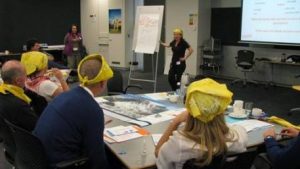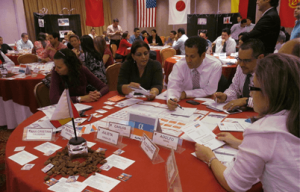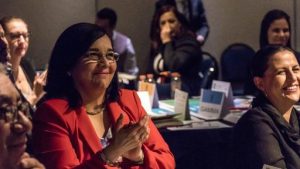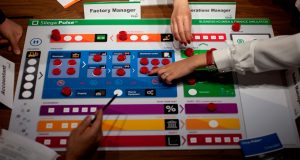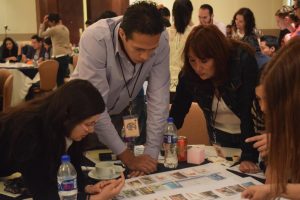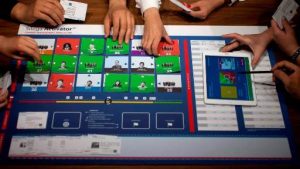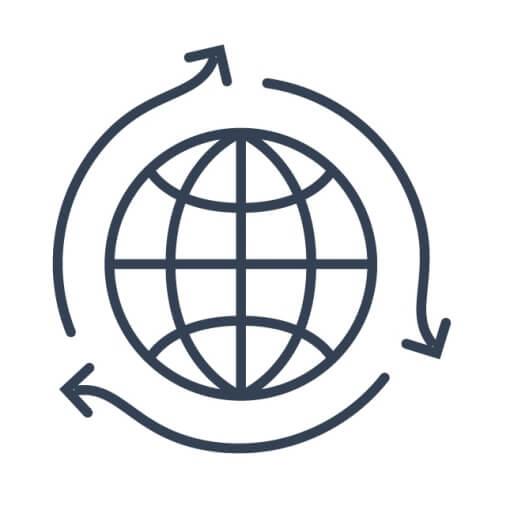Without a doubt, you have hundreds of options for your next event, from outdoor activities to cooking classes, from motivational speakers to escape rooms.
Remember the Engagement + Insight model from the previous section? We have compared the most common activities based on those two factors.
We have based our ranking only on peer-reviewed published papers (see below). Naturally, the effect of business simulations and experiential learning in general depends on the product’s quality and the facilitator’s experience.
Silega, of course, didn’t invent business simulations. However, we are one of the three leading global business simulation companies today. Our programs are being used by Fortune 500 companies and leading business schools alike.
Modern educational games are a result of intersection of war games, systems theory, operations research, learning theory, behavioral change, mathematics, game design and technology. Although the term “gamification” has been coined in 2002, the use of games for learning dates back for centuries.
| Outcome | Source |
|---|---|
| Increased interest and awareness importance of skills. | (Cousens et al, 2009) |
| Increased learning (knowledge and skills). | (Tompson & Dass, 2000) |
| Positive impact on self-control and self-esteem. | (Arias & Bustinza, 2009) |
| Students prefer simulation to textbook | (Cook & Swift, 2006) |
| High or very high degree of learning | (Battini et al, 2009) |
| Students think simulation is superior to traditional lecture-based teaching. | (Li et al, 2007) |
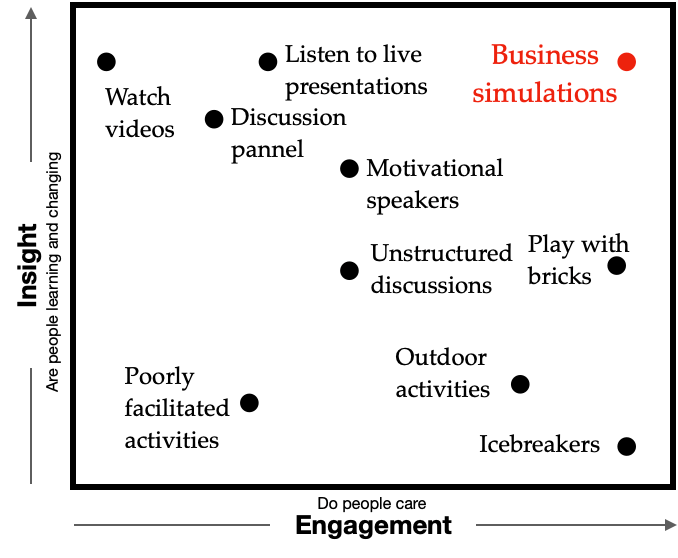
The power of business simulations
Up to 4 times more efficient than conventional training methods. Start a transformation from four hours.
Research-based and university- quality
Meticulously tested in over 35 global markets and used by the leading companies and best universities.
Valid measurement tools
Programs include a validated set of assessments to empower the change.
Highly customizable
Situations, learnings, and specific information can be tailored to meet your industry-specific needs.
Start a transformation from four hours
Simulations work because they are designed to reflect how we humans learn according to the core learning theories:
- Constructivism (we create meaning from experiences)
- Humanism (we must be engaged to learn)
- Cognitivism (information should be divided in a way we can assimilate it) and
- Behaviorism (create the right conditions for converting knowledge to actions and habits).
Below, you can discover our five-stage ELS™ model.
“The only source of knowledge is experience.”
Albert Einstein

The Exponential Learning System™ by Silega
| Stage | Experience | Awareness | Commitment | Change | Sustain |
|---|---|---|---|---|---|
| Main goal | Engage | Insights | Ownership | Challenge | Empower and reinforce |
| What is happening | Make decisions | Examine consequences, see the big picture | Create urgency | Apply immediately and quick gains | Transfer in real world |
| Example | Participate in a structured activity based on a mathematical model | Debrief what are the results of the actions taken. Use analogies to link simulation with real-world examples | Plan how to use new knowledge in future situations | Use new knowledge and improve performance | Transfer and reinforce learning |
Six best-selling simulations
Here, you can find a list of Silega’s most frequently used programs for corporate events, conferences, and team-buildings. All are available online or in person. Group size might vary from five up to hundreds of participants simultaneously.
You can find more information here: https://silega.com/business-simulations/


